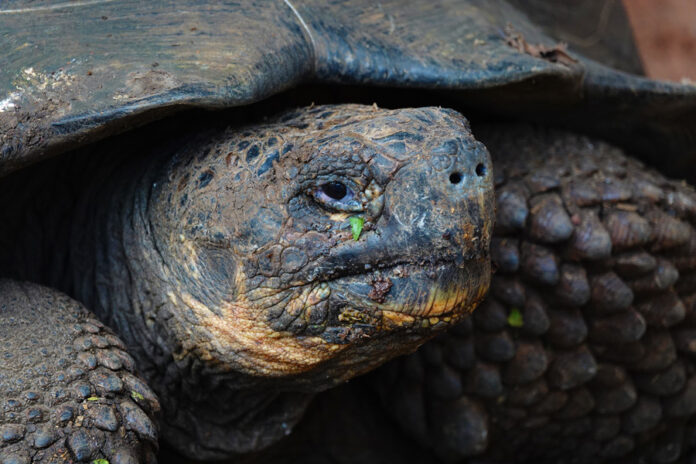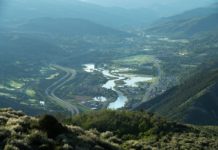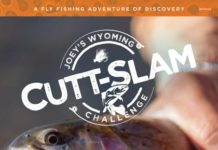Art and Photos by Alberto Rey
Alberto Rey is a longtime Upstate New York steelhead guide, 2021 Orvis-Endorsed Fly-Fishing Guide of the Year, and a Distinguished Professor for Research and Creative Activity at the State University of New York at Fredonia. He and his wife have embarked on a round-the-world trip, and they have generously agreed to share occasional updates from their travels.

Five years ago, my wife, Janeil, and I began dreaming about a retirement adventure. We each had been working since we were teens, and now that we are in our 60s and soon to retire, we wanted to mark that milestone in our lives with something special. Over those years, “The Trip” had evolved, and what started as a yearlong traipse around the world was carved down to five months due to funds and realistic projected levels of energy. We quickly realized that there were countless exotic destinations to visit but, since I was a fly-fishing addict and my wife left the initial planning to me, I started with great fly-fishing locations with reputable outfitters and soon found myself at the Orvis website. Things moved smoothly and my wife soon filled in nonfishing stops to round off the schedule.

As the months flew by and scheduling began to heat up, we realized the enormity of the project. A couple months before the trip had started, we had scheduled 25 stops in 13 countries with a few weeks left open. We were a bit concerned, but we reminded ourselves that our main goal was to have fun and that once the traveling started, we would take it one day at a time and enjoy those moments.

Unfortunately, the morning before our first leg of the trip, I came down with COVID. Instead of spending my first few days on a scheduled flats boat at El Pescador and Blue Horizon in Belize, I lay comatose on the couch rescheduling flights and accommodations and doing some preliminary drawings for my journal. The adventure had started but not how we had expected.

Two weeks later, we flew to Quito, Ecuador, before hopping over to our first destination, the Galápagos Islands. It was a beautiful, sunny day and we soon saw the first island of the archipelago, Isla San Cristobal. After all the planning and delays, it looked like this was really going to happen, and we were both overjoyed. As the wheels of the plane were about to touch down, however, we heard the plane power up quickly and we began to rise again. A long list of scenarios and outcomes ran through my head, as my wife continued to read her book, not realizing anything had occurred. We looped around couple times, and the pilot explained that there was a problem with wind shear, a sudden change in wind speed or direction, at the airport. I did not need another hiccough at the start of a five-month trip, but everything ended up fine and we were able to continue with our plans to cross the Canal de Itabaca by ferry to Isla Santa Cruz, one of five inhabited islands in the archipelago 127 islands. There we caught a ride to Rancho Primicias Giant Tortoise Reserve, which protects the island’s threatened population of tortoises. Afterward, we headed to Puerto Ayora, where the Charles Darwin Research Station has been working to protect the unique flora and fauna since 1959.

Finally, The Trip was truly underway.


Credit: Source link































